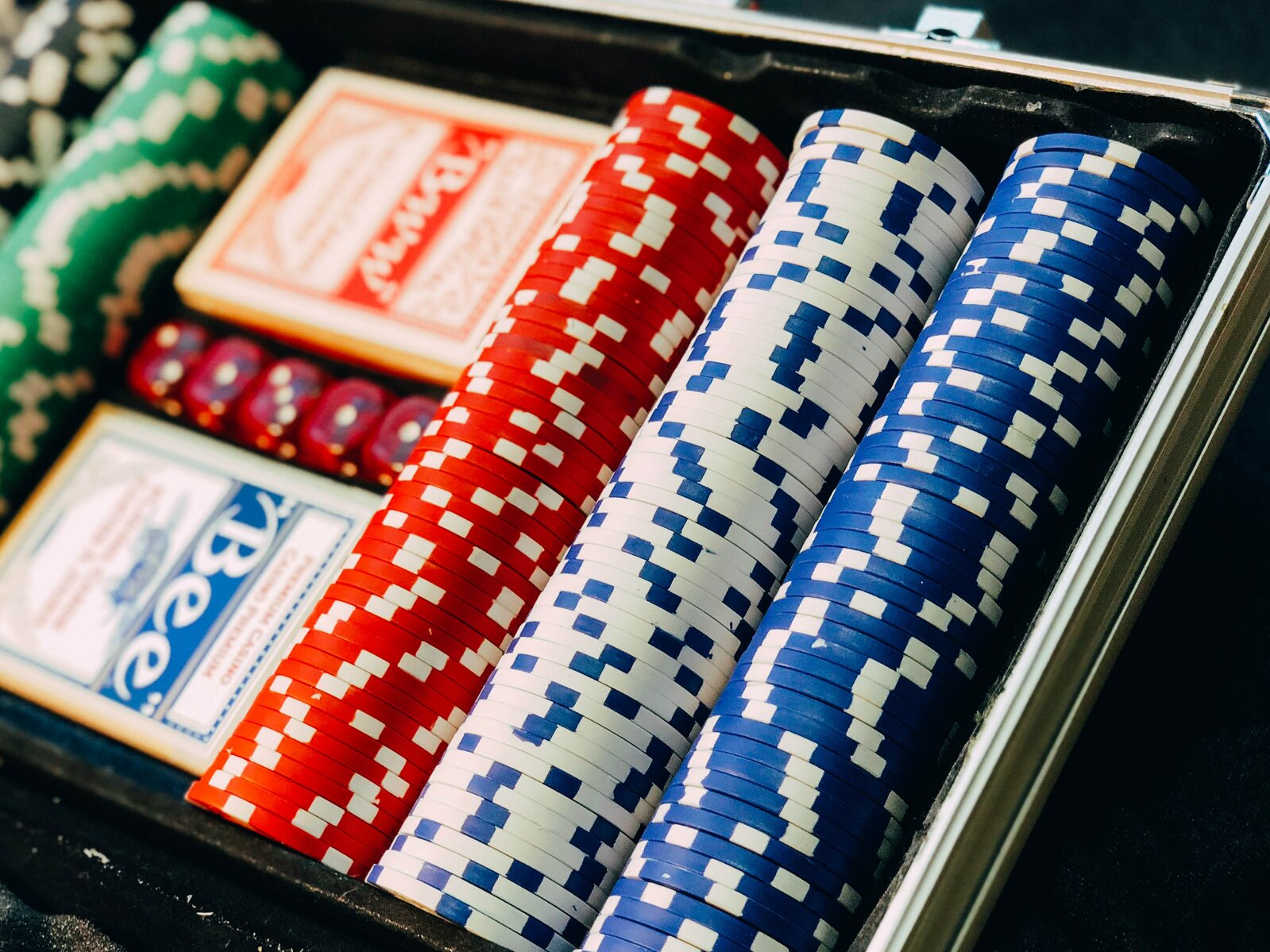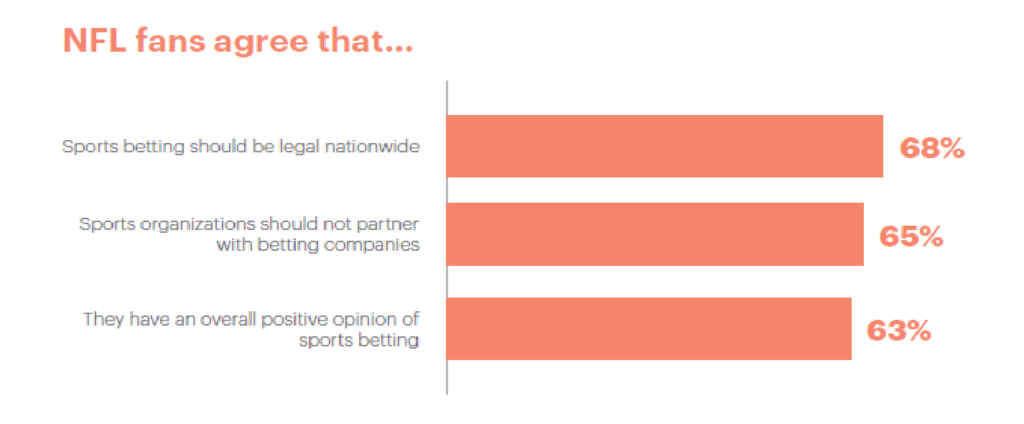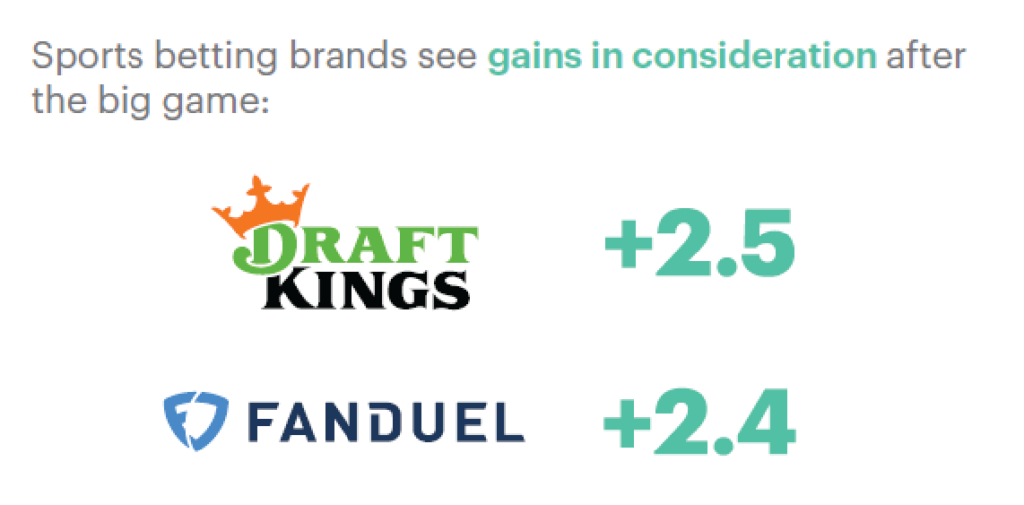Brief • 3 min Read

The American Gambling Association (AGA) estimated that $7.61 billion was wagered on Super Bowl LVI, and that approximately 9 million people would place an online bet for the game (a 70% increase from Super Bowl LV).
In 2018, the Supreme Court struck down the federal ban on sports gambling. Since then, 30 states plus the District of Columbia have legalized sports betting. Many others have proposed legislation. This expansion resonates with Americans. Over half (63%) of U.S. respondents agree that official sports betting should be legal throughout the country. The percentage jumps even higher (68%) among NFL fans.
In fall 2021, the NFL allowed sportsbook brands to run ads during football games, and established deals with multiple online sportsbooks (including Caesars Sportsbook, DraftKings, and FanDuel). This is a controversial move, and a reversal of the NFL’s prior stance against sports gambling. Even though 63% of NFL fans agree that they have an overall positive opinion of sports betting, 65% agree that sports organizations should not partner with sports betting companies.
Caesars (“Sit Down Dinner”), DraftKings (“Fortune: Life’s A Gamble”), and FanDuel (“Lady Luck”), aired Super Bowl ads to get in front of sports enthusiasts and casual fans alike during this year’s most watched game. All three embraced a comedic tone that celebrated the entertaining side of sports betting.

This was DraftKings’ second time airing a Super Bowl ad (after their 2021 debut) but marked FanDuel’s and Caesars’ first forays into Super Bowl advertising. While DraftKings and FanDuel started in 2018, Caesars recently launched in August, and used this as an opportunity to expand its national recognition. FanDuel is the only one of the three brands who did not purchase a national in-game spot. They focused their marketing efforts pre-game and purchased a regional in-game ad (within the 14 states they serve).
WANT MORE INSIGHTS FROM THE BIG GAME? DOWNLOAD OUR FULL BRAND BOWL 2022 REPORT.
DraftKings took a creative approach with their ad, introducing an edgy character, Fortune, who shows viewers that all of life is a gamble…and DraftKings’ creative gamble paid off. They saw an overall +1.8 increase in brand equity. DraftKings gained +4.9 points in familiarity with viewers, and +2.5 points in consideration. Viewers more often reported that the DraftKings brand was on its way up after the Super Bowl, as it gained +1.2 points in momentum.
FanDuel’s ad was brighter and more lighthearted than DraftKings’, with actress Jennifer Coolidge playing a jaunty “Lady Luck.” FanDuel saw a lift in their quality score from pre- to post- Super Bowl (+3.2), and an accompanying increase in consumer consideration (+2.4). However, consumers are not as confident that FanDuel is gaining steam. The brand saw a -1.9 point decrease to their momentum score, and an overall -0.12 drop in brand equity. Interestingly, both DraftKings and FanDuel’s ads positively impacted components of their brand equity scores while the ads themselves were almost opposite in tone. FanDuel’s blond, upbeat Lady Luck could almost serve as an alter-ego to DraftKings’ darker Fortune.

Subscribe for more Insights
Subscribe to our newsletter for the latest trends in business, politics, culture, and more.
Related Content









